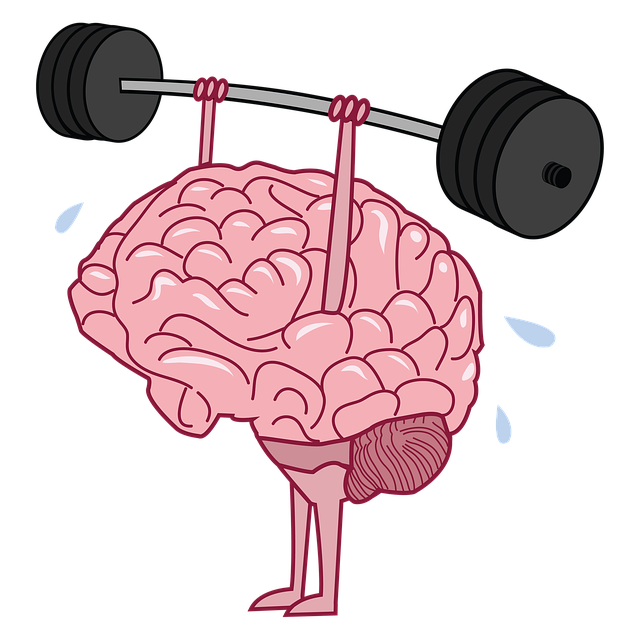Boulder First Responders Therapy (BFRT) provides specialized mental health support for law enforcement, firefighters, and paramedics through evidence-based cognitive-behavioral therapy (CBT), mindfulness practices, and risk management planning. This comprehensive approach promotes positive thinking, fosters peer support, and advocates for better mental health policies. Positive thinking exercises, backed by research, enhance brain plasticity, reduce trauma and stress, and improve overall well-being among first responders, building resilience for navigating high-stress situations.
In the demanding world of first response services, mental resilience is key. This article explores Boulder First Responders Therapy—a pioneering approach that leverages positive thinking exercises to foster emotional well-being. We delve into the science behind this method, offering insights on how these exercises can be implemented in daily life to enhance coping mechanisms and reduce stress for first responders. Discover practical strategies to cultivate a positive mindset, drawing inspiration from this unique therapy model.
- Understanding Boulder First Responders Therapy: A Unique Approach
- The Science Behind Positive Thinking Exercises
- Implementing Positive Thinking in Everyday Life for First Responders
Understanding Boulder First Responders Therapy: A Unique Approach

Boulder First Responders Therapy (BFRT) is a specialized therapeutic approach tailored to address the unique challenges faced by first responders, including law enforcement officers, firefighters, and paramedics. This therapy recognizes that these professionals often encounter high-stress situations, trauma, and critical decision-making scenarios, which can significantly impact their mental health and well-being. BFRT focuses on fostering resilience and promoting positive thinking as a means to enhance the emotional coping mechanisms of first responders.
The program incorporates various evidence-based techniques from cognitive-behavioral therapy (CBT), mindfulness practices, and risk management planning for mental health professionals. By combining these strategies, BFRT aims to equip first responders with effective tools to navigate their demanding careers. This unique approach goes beyond traditional therapy by emphasizing the importance of peer support networks, mental health education programs design tailored for their specific needs, and advocacy efforts to improve overall mental health policy analysis.
The Science Behind Positive Thinking Exercises

The Science Behind Positive Thinking Exercises
Positive thinking exercises have gained significant attention for their potential to transform mental and emotional well-being. Studies show that cultivating positive thoughts can lead to substantial improvements in overall health and quality of life, particularly among populations such as Boulder First Responders Therapy clients. This therapeutic approach leverages the brain’s remarkable plasticity, demonstrating that by consistently practicing positive thinking, individuals can rewire negative thought patterns and enhance their resilience.
The implementation of these exercises often involves strategies like gratitude practices, affirmations, and cognitive reframing, which have been backed by research in trauma support services and stress reduction methods. Community Outreach Program Implementation initiatives that incorporate these techniques can empower individuals to better cope with life’s challenges, fostering a more positive and supportive mental landscape.
Implementing Positive Thinking in Everyday Life for First Responders

For Boulder First Responders, integrating positive thinking exercises into their daily routines can significantly enhance resilience and overall well-being. These professionals often face high-stress situations, making it crucial to develop effective coping mechanisms. Implementing positive thinking doesn’t mean ignoring challenges; rather, it’s about cultivating a mindset that promotes adaptability and optimism in the face of adversity. Simple practices such as gratitude journaling, where first responders reflect on positive aspects of their day or past successes, can help shift focus from negativity to strength.
Effective communication strategies play a vital role in this process. Just as Healthcare Provider Cultural Competency Training equips professionals with knowledge to navigate diverse patient populations, fostering open dialogue and active listening among colleagues strengthens team bonds. Incorporating cultural sensitivity in mental healthcare practice ensures that first responders feel supported and understood, encouraging them to seek help when needed. This holistic approach combines practical tools like positive thinking with essential communication skills, ultimately contributing to a healthier and more resilient workforce.
Boulder First Responders Therapy offers a unique and innovative approach to mental health support, leveraging positive thinking exercises as a powerful tool. By understanding the science behind its effectiveness, first responders can integrate these practices into their daily lives, fostering resilience and enhancing well-being. This simple yet profound shift in perspective can make a significant difference in navigating the challenges they face, ensuring a healthier and more balanced future for these essential service providers.














